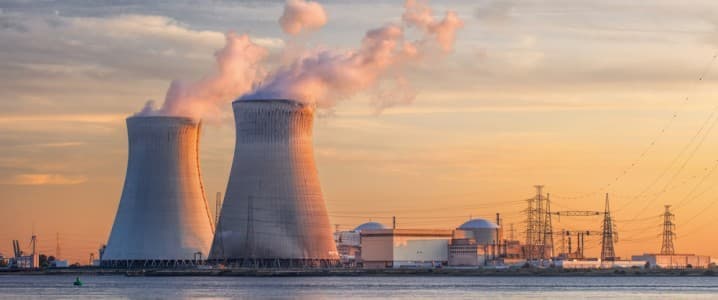
France’s nuclear sector has been hit with multiple issues at the worst possible moment. The industry is dealing with a pileup of delays and stoppages thanks to the Covid-19 pandemic, a “series of maintenance issues including corrosion at some of France’s aging reactors, troubles at state-controlled energy group EDF and a years-long absence of significant new nuclear investment,” according to reporting from the Financial Times over the summer. In the few months since that FT report, the situation has grown even worse, as a severe drought has caused rivers around Europe to run dry, leaving some French and Swiss nuclear plants without enough water to keep their systems cool.
As a result, French nuclear energy output is at an all-time low. This is a major issue for the nation, which derives about 70% of its energy from nuclear power. Generally, France is a net exporter of energy, thanks to its robust and heretofore reliable nuclear sector. Now it’s being forced to import energy in a historically tight market. The European continent is experiencing a crisis of soaring energy prices thanks to a game of chicken with Moscow. In the wake of the Russia-Ukraine conflict, the European Union has been working toward weaning itself off of its heavy reliance on Russian fossil fuels with the intention of instituting energy sanctions on the Kremlin. In response, Russia’s Gazprom has indefinitely cut off natural gas supply to the continent via the Nord Stream 1 pipeline, citing its own suspiciously timed maintenance issues.
The timing of the French nuclear collapse is all the more tragic due to the political wrangling with Russia. France has long been the global poster child for nuclear energy, with the highest production rates per capita and an evangelical zeal for nuclear energy development to shore up energy security in the era of climate change. France was not tied in any substantive way to the dangerous reliance on Russian gas imports that made the continent’s energy security so fragile. In fact, it has prided itself on the energy independence that nuclear built. But now, just when it was most needed, French nuclear has failed to save the day.
Now, the French government is going to make a bid to fully buy out EDF in order to take control of the company as it tries to right the ship. In the coming weeks, the French government is expected to launch a tender offer for the remaining 16% of the company it doesn’t already own so it can unilaterally (and quietly) make decisions pertaining to building new reactors and addressing the myriad issues with the existing fleet. “People close to the operation have said the company’s financial woes have added to incentives to remove it from the glare of markets,” the Financial Times reports.
EDF has said that it plans to have its full fleet back up and running by early next year. In order to do so, the already heavily indebted company will have to take on a whole lot more debt at a time that the company is already under scrutiny for operational errors and oversights. At the end of the day, the issues in France are not a problem with nuclear power at all – they’re a problem of mismanagement.